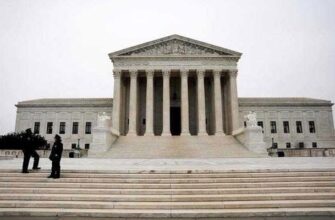A federal judge has determined that the Biden administration improperly restricted access for the Associated Press (AP) after the news organization declined to adopt a new name for the “Gulf of Mexico,” ruling that such actions violate the First Amendment.
U.S. District Judge Trevor N. McFadden, appointed during the Trump presidency, issued the decision Tuesday, stating that the White House’s actions represented viewpoint discrimination prohibited by the Constitution.
“The Government presents no reasonable justification for its treatment of the AP,” McFadden wrote in his ruling. “The Constitution explicitly prohibits viewpoint-based restrictions, even within a space considered nonpublic, such as the Oval Office.”
He further elaborated, stating, “If the government grants access to some journalists—whether it’s to the Oval Office, the East Room, or any other location—it cannot then deny that same access to others based solely on their viewpoints. The Constitution demands no less.”
The dispute stemmed from a 2017 executive order signed by former President Donald Trump which attempted to rename the “Gulf of Mexico” as the “Gulf of America.” Following this, the AP established internal style guidelines.
“The Gulf of Mexico has been known by that name for over four centuries. The Associated Press will continue to use its original designation while acknowledging the new name proposed by President Trump. As a global news agency serving diverse audiences worldwide, it’s essential that place names and geographical references are easily recognizable.”
As a result of adhering to these guidelines, the AP was barred from Oval Office events and access to Air Force One starting in February.
White House Deputy Chief of Staff Taylor Budowich publicly criticized the AP’s decision on X, stating, “The Associated Press continues to disregard the lawful geographic designation of the Gulf of America. This is not merely divisive; it reveals a commitment to spreading misinformation. While their right to publish irresponsibly and dishonestly remains protected under the First Amendment, it does not grant them the privilege of unrestricted access to limited spaces such as the Oval Office and Air Force One.”
Prior to this, White House Press Secretary Karoline Leavitt asserted that “it is a fact” that the body of water off Louisiana’s coast is officially called the “Gulf of America.”
Lauren Easton, an AP spokeswoman, welcomed the court’s ruling in a statement:
- “We are pleased with the Court’s decision.”
- “This ruling confirms the fundamental right to freedom of expression without government interference. It is a right guaranteed to all Americans by the U.S. Constitution.”
Aaron Terr, public advocacy director for the Foundation for Individual Rights and Expression, hailed the decision as a significant win for press freedoms.
“This ruling underscores that the government cannot penalize journalists simply because it dislikes their viewpoints or reporting,” Terr commented. “The AP is entitled to maintain its own stylebook without requiring approval from the White House.”




